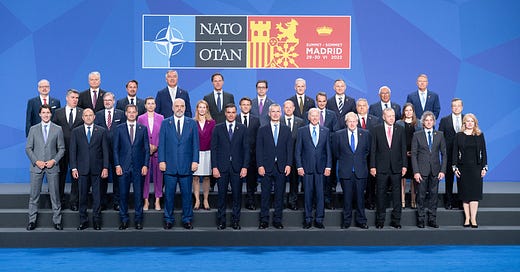At its Madrid Summit of June 29-30, NATO adopted the NATO 2022 Strategic Concept. The document reflects a Western myopic view of the world, uninformed by historical and contemporary realities. It invents a military threat from Russia in order justify its militarism and territorial expansion. It misreads China’s foreign policy; and it does not see the Third World and its emerging relation with China. The document reflects the incapacity of the Western neocolonial powers to meaningfully interpret the challenges they face from the expanding and deepening struggles for sovereignty from the global South. The document is a sign of a neocolonial world-system in sustained structural crisis and decadence, where those with power and influence do not understand the sources of the multidimensional crisis, and thus are unable to formulate creative solutions to it.
The document begins with a stunning hypocritical assertion: “We want to live in a world where sovereignty, territorial …



